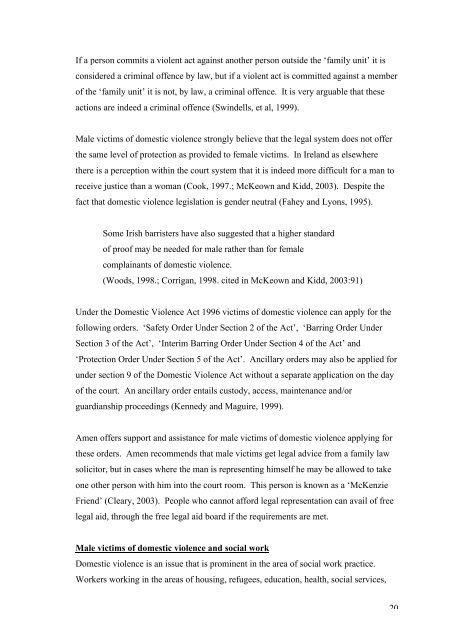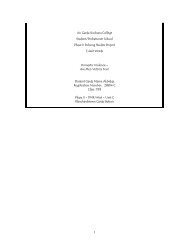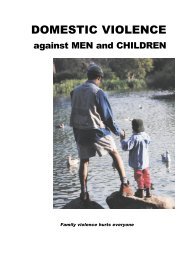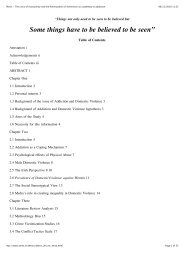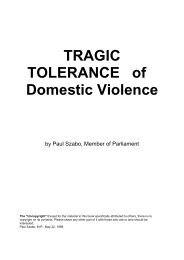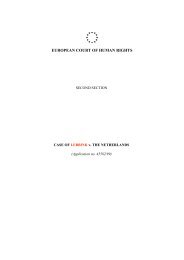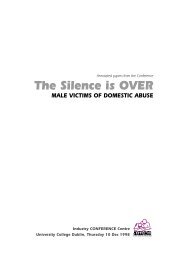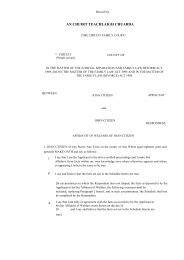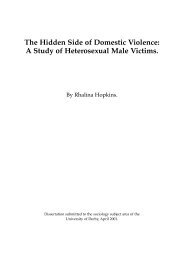MALE VICTIMS OF DOMESTIC VIOLENCE Informing Social ... - Amen
MALE VICTIMS OF DOMESTIC VIOLENCE Informing Social ... - Amen
MALE VICTIMS OF DOMESTIC VIOLENCE Informing Social ... - Amen
You also want an ePaper? Increase the reach of your titles
YUMPU automatically turns print PDFs into web optimized ePapers that Google loves.
If a person commits a violent act against another person outside the ‘family unit’ it is<br />
considered a criminal offence by law, but if a violent act is committed against a member<br />
of the ‘family unit’ it is not, by law, a criminal offence. It is very arguable that these<br />
actions are indeed a criminal offence (Swindells, et al, 1999).<br />
Male victims of domestic violence strongly believe that the legal system does not offer<br />
the same level of protection as provided to female victims. In Ireland as elsewhere<br />
there is a perception within the court system that it is indeed more difficult for a man to<br />
receive justice than a woman (Cook, 1997.; McKeown and Kidd, 2003). Despite the<br />
fact that domestic violence legislation is gender neutral (Fahey and Lyons, 1995).<br />
Some Irish barristers have also suggested that a higher standard<br />
of proof may be needed for male rather than for female<br />
complainants of domestic violence.<br />
(Woods, 1998.; Corrigan, 1998. cited in McKeown and Kidd, 2003:91)<br />
Under the Domestic Violence Act 1996 victims of domestic violence can apply for the<br />
following orders. ‘Safety Order Under Section 2 of the Act’, ‘Barring Order Under<br />
Section 3 of the Act’, ‘Interim Barring Order Under Section 4 of the Act’ and<br />
‘Protection Order Under Section 5 of the Act’. Ancillary orders may also be applied for<br />
under section 9 of the Domestic Violence Act without a separate application on the day<br />
of the court. An ancillary order entails custody, access, maintenance and/or<br />
guardianship proceedings (Kennedy and Maguire, 1999).<br />
<strong>Amen</strong> offers support and assistance for male victims of domestic violence applying for<br />
these orders. <strong>Amen</strong> recommends that male victims get legal advice from a family law<br />
solicitor, but in cases where the man is representing himself he may be allowed to take<br />
one other person with him into the court room. This person is known as a ‘McKenzie<br />
Friend’ (Cleary, 2003). People who cannot afford legal representation can avail of free<br />
legal aid, through the free legal aid board if the requirements are met.<br />
Male victims of domestic violence and social work<br />
Domestic violence is an issue that is prominent in the area of social work practice.<br />
Workers working in the areas of housing, refugees, education, health, social services,<br />
20


